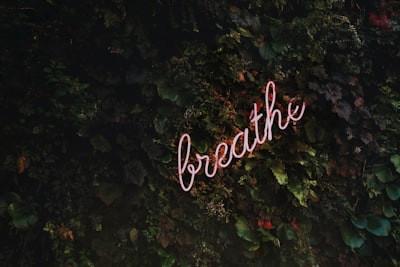Is the Way You Breathe Making You Anxious?
Curated from: greatergood.berkeley.edu
Ideas, facts & insights covering these topics:
5 ideas
·3.9K reads
13
Explore the World's Best Ideas
Join today and uncover 100+ curated journeys from 50+ topics. Unlock access to our mobile app with extensive features.
Breathing and anxiety
We have become pretty bad at the most basic act of living: breathing. We breathe through our mouths and into our chests, and we do it way too fast.
Besides the health problems this may cause, breathing the wrong way may have another big consequence: contributing to our anxiety and other mental health problems.
151
1.06K reads
How breathing can calm us
Instead of trying to think yourself out of feeling anxious, you can do something more specific: breathe slow or fast, in a particular rhythm, or through a nostril; this can work as an instant relief.
A regular breathing practice will help you feel calmer in daily situations, but studies suggest that focusing on your breathing in moments of acute stress could also be useful.
138
818 reads
Breathing: stress vs relaxation
The way we breathe can set off a cascade of physical changes in the body that promote either stress or relaxation.
Breathing impacts the sympathetic (“fight or flight”) and parasympathetic (“rest and digest”) branches of our nervous system, and certain techniques can promote more parasympathetic calm and relaxation. Some may also cause us to release hormones like prolactin and possibly oxytocin, the feel-good hormone of love and bonding.
136
635 reads
Fast breathing
- Breathing fast can act as a trigger for people with anxiety causing symptoms that often accompany panic attacks, but you can use that to your advantage.
- When you breathe fast and start to feel symptoms that you normally associate with anxiety, it may help you re-interpret those symptoms in a less threatening way.
- They become less worrisome because they have a clear cause, the same way an elevated heart rate during exercise doesn’t bother us.
- And if you can connect anxiety to faulty breathing habits, it means you can change the way you breathe and potentially see some improvement.
146
613 reads
How to breathe better
Many of the techniques that have been formally researched are derived from pranayama, yogic breathing that dates back to ancient India:
- Ujayyi: Deep breathing with a narrowed throat, creating an ocean-like sound, often recommended while doing yoga asanas.
- Bhastrika, or “bellows breath”: inhaling and exhaling forcefully.
- Nadi Sodhan and Anulom Vilom: Types of alternate nostril breathing, where air is inhaled in one nostril and exhaled through the other, sometimes with breath holding.
Although these shouldn’t be seen as a replacement for therapy or a cure for severe anxiety, they can be a free, simple tool for both short-term relief and long-term benefit.
178
774 reads
IDEAS CURATED BY
Passionate tv nerd and lifelong web junkie. I love sleeping. Sleeping is a science and I study it.
Alexandra 's ideas are part of this journey:
Learn more about health with this collection
Practicing empathy in relationships and communication
Understanding the importance of balance in personal and professional life
Defining your path in life
Related collections
Similar ideas
6 ideas
6 Breathing Exercises to Relax in 10 Minutes or Less
healthland.time.com
1 idea
1 idea
4-7-8 Breathing: How It Works, How to Do It, and More
healthline.com
Read & Learn
20x Faster
without
deepstash
with
deepstash
with
deepstash
Personalized microlearning
—
100+ Learning Journeys
—
Access to 200,000+ ideas
—
Access to the mobile app
—
Unlimited idea saving
—
—
Unlimited history
—
—
Unlimited listening to ideas
—
—
Downloading & offline access
—
—
Supercharge your mind with one idea per day
Enter your email and spend 1 minute every day to learn something new.
I agree to receive email updates

